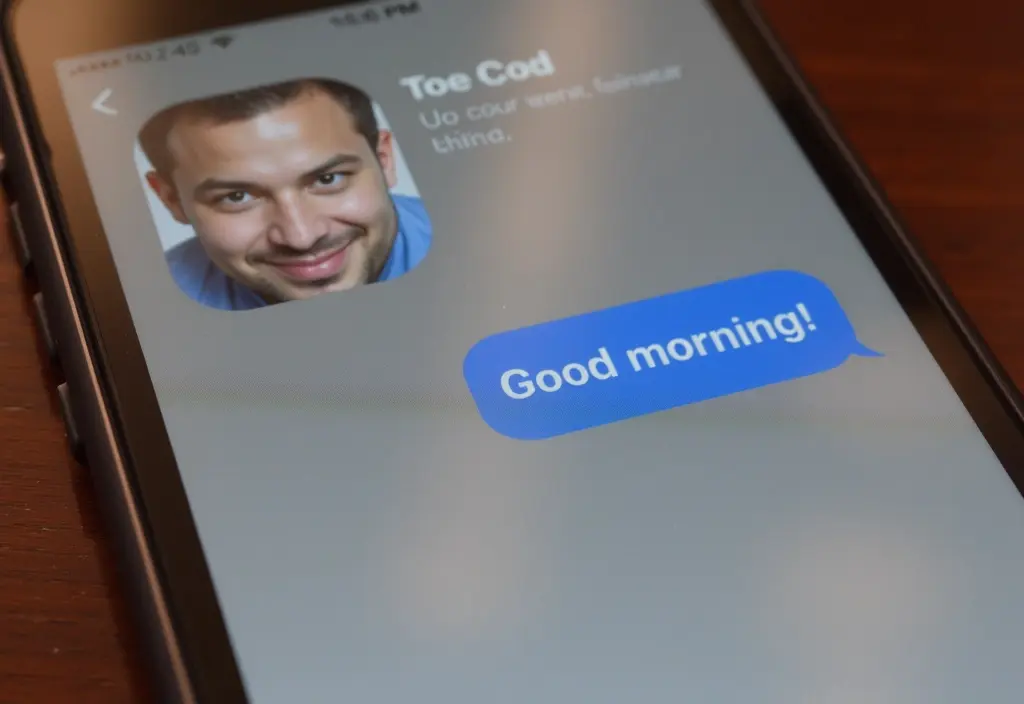Okay, let’s talk about that blinking cursor. You know the one. It’s sitting there in the bio box, or maybe in a draft post, and you’re thinking… should I? Should I actually mention the anxiety, the depression, the burnout, the stuff that’s part of my real life? We’re told constantly, aren’t we? Be authentic! Be vulnerable! Share your truth! And honestly, for so many of us women, our mental health journeys – the highs, the lows, the messy middle – feel like a pretty significant part of that truth.
But it’s not that simple, is it? It’s this knot in your stomach, this internal tug-of-war. Part of you wants to just put it out there, maybe connect with someone who gets it, maybe just feel… lighter, not hiding. But another part, that cautious voice, whispers about judgment, about bosses seeing it, about weird DMs, about regretting it later.
It’s a decision heavy with ‘what ifs’. I’ve wrestled with it myself, seen friends tie themselves in knots over it. There’s no magic eight-ball answer here. So instead of a rulebook, let’s just sit with the complexity. Think of these as 24 honest considerations for women facing the ‘mental health on profile?’ question – things to mull over, things that might resonate as you figure out what feels right, right now, for you.
That Little Voice Saying ‘Share It’… The Hope Behind Opening Up
Why does that urge to share even exist? It’s not just random. There are some powerful, positive forces pulling us towards openness.
- Maybe It Helps Someone Else: There’s that quiet hope that if you share your struggle, someone else scrolling through their feed might feel a little less alone. Like throwing a tiny pebble of “me too” into a big pond. That feels pretty meaningful, right?
- Finding People Who Get It: Let’s be honest, navigating mental health can be isolating. Sharing might be a way to signal to others who understand, to find those empathetic connections that make you feel seen, not just looked at. It’s less about finding a ‘tribe’ and more about finding a moment of real understanding.
- Feeling Whole: Hiding big parts of yourself is exhausting. Sometimes, sharing feels like you can finally exhale, integrating the struggles with the successes, presenting a version of yourself that feels more complete, more real. That internal conflict? It can quiet down a bit.
- Pushing Back on Silence: Every little act of openness chips away at the weird silence and shame that still hangs around mental health. It can feel like a small act of defiance, a way of saying, “This is part of life, and it’s okay to talk about it.”
- Filtering Connections: Being upfront can act as a filter, potentially deterring connections (personal or professional) with people who would be judgmental anyway.
- Personal Empowerment: For some, openly acknowledging their journey is an act of taking back control and owning their narrative.
But Then There’s That Nagging ‘What If?’ Fear
Okay, deep breath. The fears aren’t just in your head. They are real possibilities we need to acknowledge honestly. Pretending they don’t exist helps no one.
- Judgment is Real: Sadly, stigma hasn’t vanished. People do misunderstand. They might judge, pity, or just awkwardly avoid the topic (or you). It can sting.
- Work Stuff: This is often the big one. Could sharing impact your job prospects? How your boss or colleagues see you? In a perfect world, no. In this world? It’s a definite maybe, depending heavily on your field and workplace. It’s an unfair burden to even have to consider.
- The “Helpful” Advice Brigade: Oh boy. Open up online, and suddenly everyone’s an expert on your mental health. Brace yourself for unsolicited tips, miracle cures, and maybe even some blaming. It can be incredibly draining.
- Feeling Overexposed or Unsafe: Especially as women online, vulnerability can feel risky. Sharing personal details might attract unwanted attention or make you feel exposed in ways you didn’t anticipate. Checking that gut feeling about safety is crucial.
- Ripple Effects: Your sharing might worry family, confuse friends, or change relationship dynamics in ways you didn’t expect.
- Words Getting Twisted: Online, nuance dies fast. A quick mention could be screenshotted, taken out of context, and used to make assumptions about your stability or ability right now.
- Emotional Labor: You might find yourself constantly explaining, educating, or defending your experience, which can be exhausting just thinking about it.
It Really Depends On Where (and What) You’re Standing
Thinking about mental health on profile? It’s not one single act. Context changes everything.
- The Platform Playground: Where are you sharing? A locked Instagram story for your closest friends is a world away from your public LinkedIn profile targeting potential employers. A niche forum for people with shared experiences? Different again. The audience dictates so much.
- That Professional Line: What feels okay to share personally might be TMI professionally. It’s about navigating those boundaries – what serves your career goals versus your personal need for connection or advocacy?
- Vague vs. Specific: There’s a huge difference between saying “Mental health matters” and “I was diagnosed with Borderline Personality Disorder and here are my daily struggles.” How much detail feels right? How much feels safe?
- Looking Back vs. In the Thick of It: Sharing about a past struggle you’ve navigated might land differently than sharing about a current crisis. Think about what kind of responses each might invite.

Checking In With Your Gut (Seriously)
Forget the external pressures for a second. What does your inner compass say?
- Your Actual Comfort Level: If the thought of hitting ‘post’ makes your stomach clench with anxiety or fear… listen to that. Seriously. You don’t owe anyone your story. Your peace of mind matters more than being seen as ‘vulnerable’. Period. Protecting yourself is not weakness; it’s wisdom.
- Why Tho?: Get real with yourself. Why do you want to share this specific thing, right now, in this place? Is it for you? For others? Out of pressure? Understanding your motivation helps clarify the decision.
- Got Backup?: Who are your real-life people? If things go sideways online, who can you call or text? Having that solid offline support makes navigating online vulnerability feel much safer. Maybe even chat about it with one of those trusted people before you post.
- Your Worldview: How does your culture or community view mental health? This definitely shapes potential reactions and might influence your own feelings about sharing.
Thinking About Tomorrow’s You
The internet remembers. It’s worth a pause to think long-term.
- The Digital Tattoo: Assume it’s permanent. Even deleted posts can linger. How might future-you feel about this information being out there? Impossible to know for sure, but worth considering.
- Future You: How might your future self feel about this disclosure? It’s impossible to know for sure, but consider potential future career changes, relationship shifts, or evolving personal boundaries. (This point is closely related to #22 but focuses more on internal feelings vs. external permanence).
- Setting Boundaries After Sharing: If you do share, be ready to manage the aftermath. This includes setting boundaries. You don’t have to answer every intrusive question. You don’t have to engage with trolls. You can mute, block, and protect your space. Your mental health journey is yours, you control the narrative.
So, What Now for Considerations for Women: Mental Health on Profile?
See? No easy answers. It’s messy. It’s personal. Considering these honest considerations for women about mental health on profiles isn’t about finding the ‘right’ choice, but the choice that feels most aligned with your needs, values, and safety right now.
Maybe you start small. Maybe you share only in specific, safer spaces. Maybe you decide public profiles aren’t the place for it, and that is 100% okay. There’s bravery in speaking out, but there’s just as much strength in protecting your privacy and peace. Trust yourself. You get to decide.
Frequently Asked Questions
What are some long-term considerations I should keep in mind when sharing personal mental health information online?
Long-term considerations include remembering that online posts are often permanent, anticipating how future you might feel about the disclosure, and being prepared to set boundaries afterward to protect your mental health. It’s also wise to consider how this information might affect future career or relationship opportunities.
What should I consider before sharing my mental health struggles online?
Before sharing, consider your comfort level, your motivation for sharing, whether you have supportive friends offline, how your culture views mental health, and how future you might perceive this information. It’s important to ensure you’re sharing for the right reasons and that you’re prepared for possible consequences.
How does the context of the platform influence whether I should share my mental health story?
The platform’s context significantly influences sharing decisions because differing audiences and privacy options change what is appropriate. For example, a private Instagram story for close friends differs from a public LinkedIn profile. Also, the boundaries between personal and professional sharing should be carefully navigated based on the platform.
What are the main fears associated with sharing mental health experiences on social media?
The main fears include judgment and misunderstanding, potential impact on work relationships, unsolicited advice, feeling overexposed or unsafe, ripple effects on personal relationships, misinterpretation of words online, and emotional exhaustion from explaining or defending your experience.
Why might I feel the urge to share my mental health journey online?
The urge to share your mental health journey online often stems from the hope that it may help someone else feel less alone, find understanding, express a more complete self, push back against silence and shame, filter connections, or empower yourself by owning your narrative.





